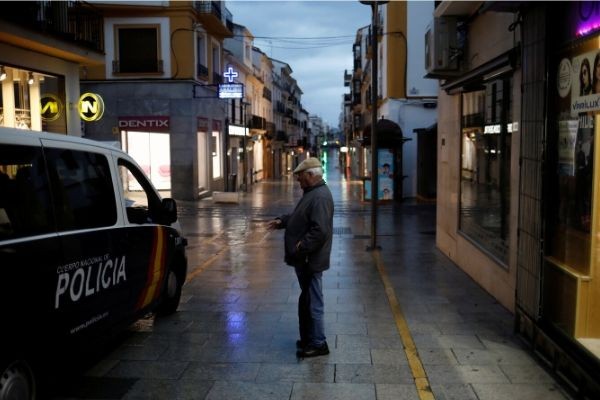
The European Union will be closing its borders to lessen the spread of the coronavirus. This includes Spain which recently announced its lockdown.
According to European Commission President Ursula von der Leyen on Monday, she said the less travel will greater the chances of containing the coronavirus, as she addressed all G7 leaders. She is confident that the European Council will vote on it.
Many of the bloc member states placed strict measures on Monday after the World Health Organization (WHO) cite Europe as the center of the pandemic.
On Monday the French President Emmanuel Macron impose a social lockdown on Monday, during a national address, banning all social events in the entire country, that included all family gatherings.
Macron added that most of whom, who has not followed measures to stave off the virus and limit the spread in France have added to the confirmed 5,380 cases and 127 deaths, reported by the WHO.
Germany also added stricter rules in public life, bars, clubs, and other establishments, that included theaters, opera houses, concert halls, last are the museums.
The German Chancellor Angela Merkel said on a press-con last Monday that these measures are imposed only the first time, but is needed.
The government declared that Supermarkets, pharmacies, gas stations, hair salons and launderettes will remain open, as they are important to everyone.
Commission President von der Leyen stressed that these EU travel limitations will be in effect for 30 days, or more depending on the situation.
The only restrictions will be family members of European nationals, needed staff like doctors and nurses, and those carrying goods to the EU will be allowed to cross borders. Retired doctor and all last-year medical students were mobilized to help guarantee the "existence of professionals to attend all of those who are affected by this virus," EU Observer reports.
Spain lockdown
Spain is under partial lockdown as it attempts to shut down the next worst coronavirus to Italy. The lockdown will last for more than 15 days
There are now 1,400 cases overnight, adding up a total of 9,190 positive cases and 309 deaths, according to the Spanish Health Ministry. In Italy, a surge of 24,000 and 1,800 dead are registered by the WHO.
All Spanish borders are shut Monday, announced by Interior Minister Fernando Grande-Marlaska. Exemption from the closed border is Spanish nationals' residents, workers, and transport of goods into Spain.
About 47 million in Spain are told to stay at home, except working, buying food, visiting the hospital, or dealing with children or elders.
Still, some persist in leaving the house to visit empty parks last Monday, but were met by drones telling them to go home.
No masses are held and only by streaming, all restos and bars are closed, and all the cultural areas are closed to the public, as Spanish Prime Minister Pedro Sanchez on Saturday declares on Saturday.
Increase of COVID-19 cases by 25% prompted the emergencies coordinator 'Fernando Simon' to implement stricter rules to avoid infection.
Most of the cases are in Madrid, as the region's President Isabel Diaz Ayuso is tested positive for the coronavirus.
The Madrid Metro is all full passengers despite about 75% fewer commuters in the city.
However, trains coming for outside of Madrid are full and commuters are complaining of safe distance, which is not followed at all. Spanish citizens complain what is the point of the Spain lockdown, if they are exposed to the virus and can get it, they ask.








